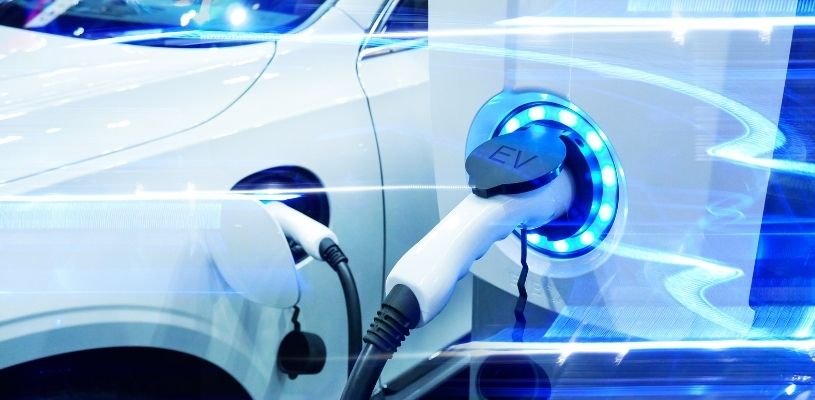
Whether you have your own fleet or run a small business from the back of your own van, buying a commercial van that’s right for you is one of the most important decisions that you’ll ever face as a business owner.
With growing concerns for carbon emissions, government crackdowns are coming into action faster than we had anticipated.
Since 2019, we’ve seen ULEZ’s (Ultra-Low Emission Zones) come into force in central London. Over the past few years, Clean Air Zones (CAZ) have been introduced in major cities across the UK. Birmingham, Bath, Bradford, Bristol, Portsmouth and Tyneside (Newcastle and Gateshead) are some of the cities who have implemented Clean Air Zones. Greater Manchester and Sheffield (in operation from 27 February 2023) are two cities that will introduce Clean Air Zones in the future. Initiatives that all aim to reduce emissions by deterring motorists of non-compliant and less environmentally-friendly vehicles travelling to areas of previously high congestion through the means of charging a daily fee.
Further announcements made last year also bring forward the ban on new conventional petrol and diesel vehicles to 2030, 10 years ahead of initial plans to reach the UK’s carbon neutrality target by 2050 - making the decision of whether or not to adopt an EV all the more unavoidable. In response, key market players Mercedes, Ford, Peugeot, Renault, Volkswagen, Nissan, Citroen and Fiat have all joined the challenge to deliver ULEZ compliance all-electric EV vans.
Here we run through all the pros and cons of running commercial electric vans that you might want to consider. Also, if you’re about everything electric, why not check one of our more recent posts on how electric cars work? It will help to give you a basic understanding of the mechanics and technology involved which can also be applied to electric commercial vehicles.
Advantages of Electric Vans
1. Lower Running Costs
Electric vans have considerably lower running costs in comparison to their diesel counterparts. A claim made by many such as Citroen which claims that its Berlingo Electric only costs 2-3p per mile to run on average. With this level of fuel economy, you can expect to pay £2 per 40 miles.
2. Cheaper to Maintain
Electric vehicles also have fewer moving parts, meaning fewer parts subject to wear and tear. They’re also lighter on the brakes, also minimising maintenance costs.
3. Kinder to the Planet
Electric vans produce zero tailpipe emissions which makes them great for improving air quality and reducing dangerous CO2 and NOx emissions.
4. Incentives
There are many government backed schemes to help make this change for a cleaner and brighter future which are also available for commercial vehicles too. One example is the Government Plug-in Van Grant which offers a 20% discount on all brand new, low emission vehicles purchased through dealerships and suppliers. This discount is already applied to the prices you see when buying your new EV van which allows you to save as little as £3,000 for small electric vans and upto £16,000 for 3.5-4.25-tonne large electric vans/trucks. Businesses can also benefit from reduced tax burden, free charging and parking in some areas and help towards the cost of workplace chargers.
5. Positive PR
Whether you have an electric van or a full fleet, making the choice to adopt an electric vehicle will make your environmental consciousness known and generate positive brand association.
6. Minimising Business Risk
With growing urgency to tackle climate change and cities introducing clean air zones throughout the country, more and more businesses are making the switch to electric vehicles as a way of future-proofing their business and lowering business risk.
7. Easy to Drive
With only an accelerator and brake to worry about, e-vans are incredibly simple to drive. There is no need to mess around with any gears and all you need to worry about is stopping and starting. They are also very nippy because of the instant torque given by electric motors, making them ideal for driving in town. Other than the hum in the distance, new electric vans are practically silent and make for a much more pleasant driving experience.
Disadvantages of Electric Vans
1. Range Frustration
Estimates state that around a third of vans never complete more than 80 miles in a day, making electric vans with a typical range of 100 miles a viable commercial solution. However, there is anxiety felt amongst many electrical vehicle drivers that have concerns that the battery power will run out before reaching the destination or a suitable charging point.
Until battery technology evolves and range improves, van drivers covering long distance journeys will suffer from frequent interruptions of having to stop regularly and recharge.
2. Charging Challenges
There are over 35,000 charging points connectors for electric vans UK-wide while many are also owned at home and by businesses. Despite the number growing continuously, there are still gaps in the UK and especially in rural areas while competition faces motorway services - 1000 of which only offer rapid charge.
To put charging times into perspective, a rapid 50kW charger can charge an electric van from 20% to 80% in 40 minutes while wallbox chargers take 7.5 hours to complete a full charge from a flat battery.
3. Higher Initial Outlay
Electric vans typically have higher up-front costs associated with them in comparison to your conventional petrol and diesel powered alternatives which retail at a lower price. However, it is thought that as electric vehicles become more popular and government targets near that prices will become more competitive.
There is also the cost of a home or office charger to consider which offers added convenience as charging can require a great deal of time and especially if not in proximity of a rapid charger.
One way to cut costs is through leasing, however, we always advise to calculate the whole life costs which take into account the purchase price, costs to run such as fuel, tax and congestion charges as well as the cost of maintenance.
4. Reduced Payload
The payload of electric commercial vehicles is often the price paid through bulky components involved in the vehicle mechanics such as their batteries which eat the available space of an electric van. While large electric vans with higher payloads are available, they reduce vehicle range just as when used in cold weather or driven aggressively.
5. How Green?
It's clear that electric vehicles are kinder to the planet than their alternatives, especially as renewable energy is set to take over. However, critics point out that much of our energy that charges our electric vehicles still comes from gas, coal and nuclear power stations.
6. Depreciation
As a relatively new technology, there is not too much known about EVs and how they depreciate. While they depreciate the same way once driven out of a dealership, the residual value is not something that is known but industry experts expect this change as electric vehicles grow in popularity.
If you would like any help in finding your ideal electric commercial vehicle, whether a van or car, leave an enquiry or request a call back. Our team will help you find the cheapest deal on an EV that will suit you.


